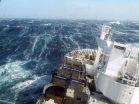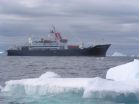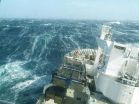Struggles with sleep may affect heart disease risk
American Heart Association Rapid Access Journal Report
2015-09-10
(Press-News.org) DALLAS, Sept. 10, 2015 -- Are you getting enough quality sleep? Are you sleeping longer than you should? Poor sleep habits may put you at higher risk for early signs of heart disease when compared to those who get adequate, good quality sleep, according to a study published in the American Heart Association journal Arteriosclerosis, Thrombosis and Vascular Biology.
"Inadequate sleep is a common problem and a likely source of poor health, including visible signs of disease, such as heart attack," said Chan-Won Kim, M.D., study co-lead author and clinical associate professor in the Center for Cohort Studies at Kangbuk Samsun Hospital, Sungkyunkwan University School of Medicine in Seoul, South Korea.
Researchers studied more than 47,000 young and middle-aged adults who completed a sleep questionnaire and had advanced tests to detect early coronary artery lesions and measure arterial stiffness. Early coronary lesions were detected as the presence of calcium in the coronary arteries and arterial stiffness was assessed by measuring the velocity, or speed, of the pulse wave between the arteries in the upper arm and ankle.
After measuring coronary calcium, researchers found:
Adults who sleep five or fewer hours a day have 50 percent more calcium in their coronary arteries than those who sleep seven hours a day.
Those who sleep nine or more hours a day have more than 70 percent more coronary calcium compared to those who sleep seven hours.
Adults who reported poor sleep quality had more than 20 percent more coronary calcium than those who reported good sleep quality.
"We also observed a similar pattern when we measured arterial stiffness," said Yoosoo Chang, M.D., Ph.D., study co-lead author and associate professor in the Center for Cohort Studies at Kangbuk Samsun Hospital. "Adults with poor sleep quality have stiffer arteries than those who sleep seven hours a day or had good sleep quality. Overall, we saw the lowest levels of vascular disease in adults sleeping seven hours a day and reporting good sleep quality."
The study's findings highlight the importance of adequate sleep quantity and quality to maintain cardiovascular health.
"For doctors, it might be necessary to assess patients' sleep quality when they evaluate the cardiovascular risk and the health status of men and women," Kim said.
The self-reported assessments of sleep duration and quality in the study may underestimate the cardiovascular risk, researchers said.
INFORMATION:
Other co-authors are Di Zhao, Ph.D.; Miguel Cainzos-Achirica, M.D.; Seungho Ryu, M.D., Ph.D.; Hyun-Suk Jung, M.D.; Kyung Eun Yun, M.D., Ph.D.; Yuni Choi, B.S.; Jiin Ahn, M.S.P. H.; Yiyi Zhang, Ph.D.; Sanjay Rampal, M.D., Ph.D.; Youngji Baek, M.P.H.; Joao A. Lima, M.D., Ph.D.; Hocheol Shin, M.D., Ph.D.; Eliseo Guallar, M.D., Dr.P.H.; Juhee Cho, Ph.D.; and Eunju Sung, M.D., Ph.D. Author disclosures are on the manuscript.
Additional Resources:
Researcher photo, sleep images, and a heart illustration are located in the right column of this release link http://newsroom.heart.org/news/struggles-with-sleep-may-affect-heart-disease-risk?preview=e7189a70d28c03e99897d0b78f603fda
Chronic insomniacs may face increased risk of hypertension
Insomnia may significantly increase stroke risk
Follow AHA/ASA news on Twitter @HeartNews.
For updates and new science in Arteriosclerosis, Thrombosis and Vascular Biology, follow @atvbahajournals.
Statements and conclusions of study authors published in American Heart Association scientific journals are solely those of the study authors and do not necessarily reflect the association's policy or position. The association makes no representation or guarantee as to their accuracy or reliability. The association receives funding primarily from individuals; foundations and corporations (including pharmaceutical, device manufacturers and other companies) also make donations and fund specific association programs and events. The association has strict policies to prevent these relationships from influencing the science content. Revenues from pharmaceutical and device corporations are available at http://www.heart.org/corporatefunding. END
ELSE PRESS RELEASES FROM THIS DATE:
2015-09-10
DALLAS, Sept. 10, 2015 - For better cardiovascular health, check your gut. Bacteria living in your gut may impact your weight, fat and good cholesterol levels, factors necessary to help maintain a healthy heart, according to new research in Circulation Research, an American Heart Association journal.
"Our study provides new evidence that microbes in the gut are strongly linked to the blood level of HDL (good cholesterol) and triglycerides and may be added as a new risk factor for abnormal blood lipids, in addition to age, gender, BMI and genetics," said Jingyuan Fu, Ph.D., ...
2015-09-10
They're the latest rage in jewelry and gadgetry, but like all computer devices, smart watches are vulnerable to hackers, say researchers at the University of Illinois at Urbana-Champaign.
Using a homegrown app on a Samsung Gear Live smart watch, the researchers were able to guess what a user was typing through data "leaks" produced by the motion sensors on smart watches. The project, called Motion Leaks through Smartwatch Sensors, or MoLe, has privacy implications, as an app that is camouflaged as a pedometer, for example, could gather data from emails, search queries ...
2015-09-10
Researchers at Scripps Institution of Oceanography at UC San Diego have released details of a deep-sea site roughly 48 kilometers (30 miles) west of Del Mar (just north of San Diego, Calif.) where methane is seeping out of the seafloor, the first such finding in the region.
Scripps graduate students on a 2012 UC Ship Funds Program expedition aboard Scripps's research vessel Melville off San Diego County discovered the "Del Mar Seep" during the San Diego Coastal Expedition. Such methane seeps are fascinating environments because of their extraordinary chemical features, ...
2015-09-10
Many of the drugs we take today to treat pain, fight cancer or thwart disease were originally identified in plants, some of which are endangered or hard to grow. In many cases, those plants are still the primary source of the drug.
Now Elizabeth Sattely, an assistant professor of chemical engineering at Stanford, and her graduate student Warren Lau have isolated the machinery for making a widely used cancer-fighting drug from an endangered plant. They then put that machinery into a common, easily grown laboratory plant, which was able to produce the chemical. The technique ...
2015-09-10
The Southern Ocean has begun to absorb more atmospheric carbon dioxide (CO2) according to new research from an international team, including the University of East Anglia.
A decade ago scientists announced that the amount of CO2 being absorbed by the Southern Ocean had not increased since the late 1980s. And it was feared that this 'carbon sink' might have begun to saturate.
But new research to be published tomorrow (Friday) in the journal Science reveals that rather than stalling, the amount of CO2 being absorbed is on the rise again.
It is thought that changes ...
2015-09-10
This news release is available in Japanese.
Inconveniently, the only current method to synthesize the chemotherapy agent etoposide is by using extracts from a plant, but researchers have successfully manipulated Nicotiana benthamiana (tobacco) to create a more immediate and potent precursor. Etoposide is a topoisomerase inhibitor used to treat a variety of malignancies, including lung cancer and leukemia. There is currently no way to produce etoposide without one of its precursors, podophyllotoxin, which is found in the slow-growing Himalayan Mayapple plant. Four ...
2015-09-10
This news release is available in Japanese.
In this Policy Forum, Jonas Meckling et al. discuss the need to close the gap between climate science and policy, arguing that targeted policies and economic incentives are the answer, rather than broad carbon taxes. As policymakers convene at the United Nations Climate Change Conference in December, pinpointing the best policies is critical for a more sustainable future. In theory carbon pricing poses as an efficient solution, but this has yet to be seen in practice. As the authors point out, carbon regulation imposes costs ...
2015-09-10
This news release is available in Japanese.
Patients with metastatic melanoma who have benefited from a new type of cancer immunotherapy don't appear to share the same tumor-produced antigens, according to a new report by Eliezer Van Allen and colleagues. If the molecular targets for the immunotherapy differ from patient to patient, as this study suggests, it may be difficult to predict which patients will respond to the treatment. The drug, called ipilimumab, is part of a relatively new class of cancer treatments called immune checkpoint inhibitors. The inhibitors ...
2015-09-10
This news release is available in Japanese.
The Southern Ocean has increased its uptake of atmospheric carbon dioxide again, after showing signs of slowing uptake in the 1990s, according to a new report from Peter Landschützer and colleagues. The Southern Ocean is a huge player in carbon sequestration, accounting for up to 40% of oceanic uptake of atmospheric carbon dioxide. When earlier studies showed the Southern Ocean's carbon sink weakening, the findings raised concerns that the planet might lose a powerful way to remove the growing amounts ...
2015-09-10
Breathe in, breathe out, in, out... Like a giant lung, the Southern Ocean seasonally absorbs vast amounts of carbon dioxide (CO2) from the atmosphere and releases it back later in the year. But on an annual average the seas surrounding Antarctica absorb significantly more CO2 than they release. Most importantly, these seas remove a large part of the CO2 that human activities emit into the atmosphere, thereby slowing down the growth of this greenhouse gas in the atmosphere, lessening the rate of climate change. Although the Southern Ocean represents no more than a quarter ...
LAST 30 PRESS RELEASES:
[Press-News.org] Struggles with sleep may affect heart disease risk
American Heart Association Rapid Access Journal Report



